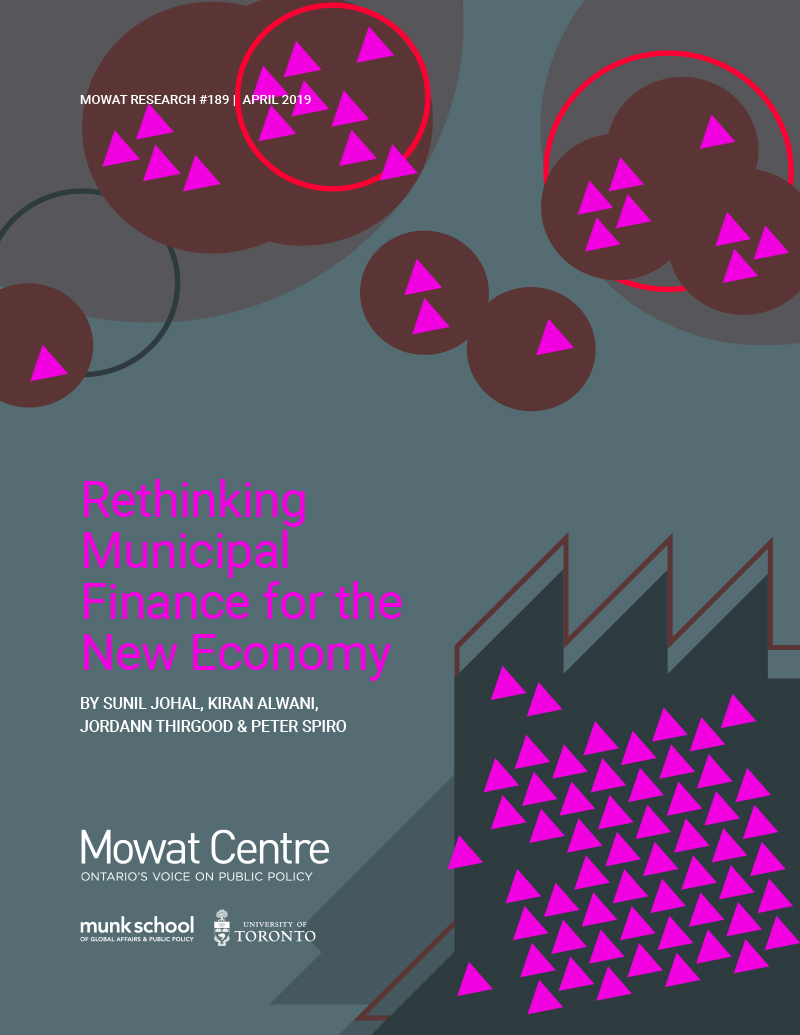April 2, 2019
While ongoing economic and employment trends are constraining government revenues globally, municipalities in Canada face additional challenges due to their unique governance and fiscal context. Our latest report offers the first systematic analysis of the impact of these trends on municipal revenues, and identifies ways in which municipalities can modernize their approaches to revenue generation for the 21st century economy.
How should municipalities respond? The key will be modernizing municipal revenue generation to reduce reliance on land-based tax sources. But this is complicated by the fact that municipalities in Canada are ‘creatures of the province’ with limited authority, and cannot introduce new revenue tools without provincial approval. In light of these realities, this study presents a range of strategic and tactical approaches that municipalities should consider.
This report was commissioned by the Region of Peel.
View PDF
Authors
Sunil Johal
Kiran Alwani
Jordann Thirgood
Peter Spiro
Release Date
April 2, 2019
ISBN
978-1-77259-082-1
Mowat Research
No. 189








